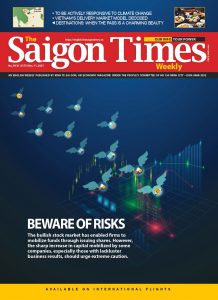The local media have featured several articles which reported that higher fuel price had adversely impacted the economic recovery. In addition to direct effects on consumers and the transport sector, high fuel price also exerts an indirect influence on the entire economy of the next production cycle when almost all industries have to use inputs—which entail transport services and other products whose prices have been higher since the preceding production cycle. Therefore, cuts on fuel taxes and fees will finally help spur the economic growth all are looking forward to.
Soaring fuel price not only boosts PPI (Producer Price Index) and CPI (Consumer Price Index) but also dampens GDP (Growth Domestic Product) growth rate. As the Covid-19 pandemic significantly reduced the GDP growth rate in the third quarter, the current high price of fuel will definitely slow down the economic recovery pace.
When appraising the aid package allocated to accelerate the economic recovery, the National Assembly’s Financial and Budgetary Committee said given the catastrophic consequences of the pandemic, the goal of achieving the economic recovery and ensuring social welfare is extremely urgent. The Financial and Budgetary Committee maintained that it is necessary to be steadfast in arranging and implementing the aid package for the time being.
Consequently, it needs to undertake comprehensive research studies on the issue and balanced solutions so that the aid package can be carried out on a scale big enough to create deep impacts and wide ripple effects. At the same time, it is essential to conduct surveys which lead to the synchronic use of monetary and fiscal policies. The committee also favors the formulation of new appropriate policies which take into account tax holidays, and the reduction of fees and charges, and social insurance as well as health collection.
In line with the above spirit, one of the best policies on production and consumption support relates to tax and fee cuts that are carried out to reduce fuel price as soon as possible. It is logical to say that tax and fee reduction effective in fuel price will exert positive impact on the economy in a way much quicker than the effects of aid packages relevant to bank interest rates and the budget.

Currently, Vietnam’s ability to absorb investment capital is not in its best form. According to data obtained from the General Statistics Office, total social development capital and asset accumulation show that out of 100 dong invested in production to create fixed and current assets, only 80 dong can finally reach its target. The impact of lower fuel price is as effective as the aid package using public investment, if not more efficient, while being subject to less ethical risks.
In the context that the economy and the people who still have a hangover from the devastating pandemic are trying their best to make comeback, the current fuel price having to shoulder too many kinds of taxes and fees is both unreasonable and illogical.
The process of fuel price formation entails import price, import tariff rate of 10%, value added tax rate of 10%, and excise tax rate of 10% for RON95 gasoline and 8% for E5 gasoline. Consequently, all these taxes add up to a total of VND4,000 per one liter of RON95 gasoline, and VND3,800 per one liter of E5 gasoline. What’s more, each liter of gasoline is still subject to business standard costs of more than VND1,000, standard profit of VND300 and the contribution to the price stabilization fund.
Given the current selling price of fuel, environment tax accounts for 16% of the selling price. Unlike import tax and value-added tax which are calculated in line with CIF, environment tax is a fixed amount regardless of fluctuations of fuel import price. In reality, environment tax is just a name and its use is similar to other types of collection. Yet nobody has demanded for its effective utilization.









